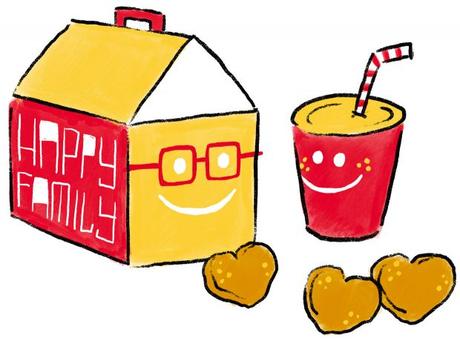You can't swing a mismatched sock without hitting someone giving you parenting advice. Talk shows and books, blogs and social media, teachers, therapists, other parents, your parents - it's everywhere and it's constant. And as we're a year into a pandemic, lord knows we need all the advice we can get. But I also know I'm not always ready to digest it.

Speaking of parenting advice, I recently sat in on a conversation with Jessica Lahey. Her book, The Gift of Failure: How the Best Parents Learn to Let Go So Their Children Can Succeed, is a New York Times bestseller. She's also a teacher and a mom, and chock full of delicious parenting know-how.
Jessica crammed a lot of wisdom, feedback and advice into our hour-long chat, sponsored by Responsibility.org. And while a lot of what she shared rang true, I found myself terribly overwhelmed. Overwhelmed with good and helpful information, but overwhelmed, nonetheless.
Quarantine life has been taking its toll on me lately, and most days I feel like I'm just getting by. I was tempted to give in to my anxiety, chuck all this info out the window, and hope for the best (a common defense mechanism for me). But this time I took a different approach.
I set my notes aside for a while. Several days later I revisited them, highlighting a few of Jessica's points that resonated the most. I added a few new thoughts, making a manageable list. Not a list of commandments, but bite-sized morsels I committed to at least trying.
I forced myself to limit my list to three nuggets of wisdom. If you've followed this blog for long, you know how much I love lists. You can't imagine how difficult it was not making this into a Top 10! But I was aiming for attainable, not exhaustive.
Nugget number 1: The less you nag your kids, the more room you have to talk about what's interesting and important to them... which leads to a stronger relationship.
.
Let's be real here - I'm never going to not nag my kid. It's part of the job. But this tasty bit of insight reminded me of a recent parenting win, and how I should try it more often.
My 11-year-old is a notorious feet-dragger. On a recent Sunday afternoon, I was taking him shopping with his birthday money, so I figure he'd be in turbo mode. But alas, he was not. I was getting impatient and frustrated at his never-ending cycle of distraction, dilly-dallying and defiance. But since we weren't on any kind of real deadline, I took the opportunity not to nag, cajole, remind and prod until we were out the door. As it's stressful on him and me, I was curious to see how this strategy would play out. I told him what time we needed to leave, and that I was going upstairs to fold laundry while he got dressed. He was to let me know when he was done and ready to go.
A half hour past the time I'd told him, my son hollered that he was finally ready. I made no mention of the missed deadline, and we headed out. We had a great time chatting on the way to the store. This was a rare outing due to Corona, and a rare opportunity to have an actual conversation that didn't involve reprimanding (from me) or whining (from him).
We got to the store and I let him mill around a bit before we approached the counter to ask for the video game he was looking for. My kid was bummed when we were told they didn't have it. Even more so when we learned the nearest store that had it was closing in five minutes.
As my melancholy son and I got into the car, I told him we could try again next weekend. I also added (as nonchalantly as possible) that we could also try and leave a little earlier next time. As we drove home, my son uttered words I thought I'd never hear him say:
"I'm sorry I took so long to get ready."I kept my shock and jubilation to myself, and just told him I appreciated the apology.
Action item: Pause before I remind for the umpteenth time; breathe. Take some time each week to just hang out. Don't ask about homework right at the end of the school day.
Nugget number 2: You can give your kids structure and autonomy
.
Jessica (and her book) talks a lot about finding ways to let go, give your kids more responsibility, trust them more. So how do I balance that for my ADHD child that needs lots of structure, lots of reminders, lots of everything?
Kids with ADHD and other learning challenges have limited resources - especially when it comes to succeeding in more than one area at a time. Jessica compared parents to training wheels. You don't just remove them all at once - you raise them little by little as your little riders learn. Little by little their core gets stronger and their balance improves. If they tip, we (and the wheels) are there, but they learn. Jessica reminded us that parents are the wheels and not the entire bike - don't try to do it all at once or do everything for them.
Jessica went on to explain that this process can apply to everything, from homework to chores. She recommended focusing on one thing at a time, taking a seasonal approach. This allows things to become habitual and sets your child up for more success.
Action item: Revisit that dusty chore chart, pick a few to focus on for the next couple of months, do a celebratory dance when they become habitual; repeat.
Nugget number 3: Love the kid you have, not the kid you wish you had.
.
Oftentimes parents will view their children through a lens of comparison - to a sibling, a classmate, even themselves. This is one I've struggled with more and more as my son gets older. While we certainly have some similarities, as children we couldn't have been more different.
It's not that I don't love my son. I think it's more that I'm basing his experiences on what I was like as a child. How much I loved school, how I strove to always be a teacher's pet, how much I disliked sports. These comparisons have only done harm in that they limit my own child's successes and failures, and the ability to learn from either.
Action item: Be specific, intentional and thoughtful in the ways I praise my son. Make sure I'm praising him for things he's good at and proud of, not just the things I think he should be.
The next time you come across a book, interview or blog post doling out parenting advice, give yourself the freedom to take it or leave it (including this one). Or just take part of it. You never know when something will speak to you or inspire you or soothe your childrearing-ravaged soul. Nibble as you're able, put things into practice when you can, but never give up. Go at your own (and your kid's) pace, but never give up. You've got this.*
*A reminder that I am not a parenting expert, in any way, shape or form. All advice given on this blog is mostly me talking to myself. And if it helps a few others along the way, it's all gravy!
Jessica Lahey's second book, The Addiction Inoculation: Raising Healthy Kids in a Culture of Dependence, comes out in April. She is a parenting expert, so follow her here, here and here!
Responsibility.org is all about healthy conversations between parents and kids, especially when it comes to responsible alcohol choices. Check out their site for valuable info for parents and non-parents alike. Important fact: parents are the leading influence on a child's decision to drink (or not drink). When conversations about alcohol between parents and kids increase, underage drinking decreases.
As a brand ambassador for Responsibility.org, I am being compensated to write this post. However, all opinions are my own.
comments

